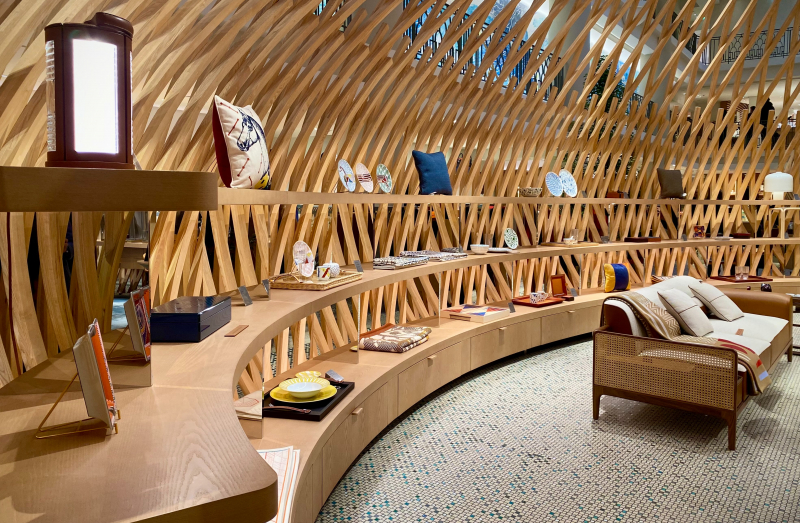Hermès

Hermès has maintained its artisanal and humanist ideals since 1837. Hermès' distinctiveness comes from the freedom to create, the ongoing search for attractive materials, and the transmission of an excellent know-how, which allows the creation of practical, elegant, and timeless things. The family-owned, autonomous, and socially responsible corporation has 52 production locations in France and 300 outlets in 45 countries. Hermès, a six-generation-old French family enterprise, is artisanal, artistic, innovative, and responsible. The house's sixteen métiers blend independence, ingenuity, and know-how. The items are sturdy and adaptable. Hermès is devoted to preserving resources, supporting manufacturing regions, and passing on unique know-how.
Since 1837, Hermès has followed two threads: the craftsman's meticulous work and the customers' lifestyles. Hermès makes gorgeous, durable, and heirloom-worthy items. The craftsmanship and high-quality materials create timeless, sustainable masterpieces. The company, which employs over 16,000 people, is committed to a responsible approach based on a never-ending demand for quality and expressed in its cultural, societal, and environmental obligations. Hermès designs combine high aesthetic standards and utility with remarkable know-how and versatility. The house's repair workshops worldwide preserve these antiques, which develop a patina as they're passed down. The house uses lean production and circularity to design new materials. Hermès hires and trains artisans annually to support its expansion. Since 2021, its first CFA (apprentice training center) has given new graduates diplomas. Internal mobility allows employees to use their skills in an inclusive, diverse team. Finally, Hermès provides good jobs in a healthy workplace.
Hermès makes 80% of its products, including all leather goods. The natural placement of companies near regional hubs allows employees to become part of the local social and cultural environment, actively revitalizing these regions. Sustainable construction standards ensure reliable infrastructure at new production sites. Hermès has remained faithful to its 50 vital direct suppliers for almost 20 years. These alliances' stability and shared principles enable the group's supply security and material traceability. Hermès and its partners share a CSR dynamic. Hermès requires third-party accreditation for each purchase channel. The group wants 100% textile and leather certification by 2024. Hermès respects nature and limits its environmental impact. Supply chain transparency, security, and localization are essential. The group controls water, energy, and carbon emissions during production and sustainable site construction. Finally, as one of its Fondation's pillars, Hermès is preserving biodiversity.
Founded: 1837
Headquarters: Paris, France
Website: https://hermes.com










